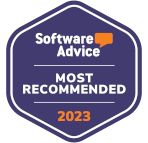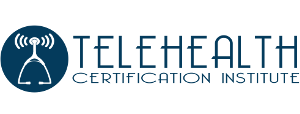
CounSol.com is a secure and HIPAA-compliant telehealth platform designed to protect your patient’s and practice’s sensitive information.
Maintaining HIPAA compliance is not just a legal requirement but a fundamental ethical obligation when it comes to utilizing a HIPAA-compliant telehealth platform in your practice. These platforms facilitate the remote delivery of healthcare services, allowing patients to access medical consultations from the comfort of their homes.
As the healthcare industry embraces digital transformation, the potential risks to patient privacy also increase. A HIPAA-compliant telehealth platform helps to mitigate these risks, providing a secure environment for confidential health information, and maintaining trust between healthcare providers and their patients.
Secure Data Encryption
Data encryption is a crucial security measure employed in a HIPAA-compliant telehealth platform to protect the confidentiality and integrity of sensitive patient information. Encryption involves converting plain-text data into a coded format, making it unreadable without the appropriate decryption key.
End-to-end encryption (E2EE) is a reliable and secure form of data protection in a HIPAA-compliant telehealth platform. One widely adopted encryption standard in telehealth is the Advanced Encryption Standard (AES), particularly the AES 192-bit and 256-bit variants. This level of encryption is considered highly secure and is utilized in various industries, including healthcare, to protect sensitive information effectively.
Using a HIPAA-compliant telehealth platform prioritizes patient data security by implementing these end-to-end encryption variants and adhering to secure encryption standards. This ensures patient information protection during transmission and storage, meeting HIPAA’s stringent security requirements.
Secure Patient Communication Channels
In telehealth, where digital communication plays a significant role, ensuring the confidentiality and integrity of patient data is crucial. A HIPAA-compliant telehealth platform will have secure communication channels that protect patient privacy and build trust, allowing patients to freely discuss health concerns, share medical history, and receive personalized care without fear of unauthorized access or data breaches.

To comply with the HIPAA Privacy and Security Rules, secure communication features must adhere to strict standards:
- Encryption: All data transmitted or stored must be encrypted to prevent unauthorized access. This includes the content of messages, video calls, and attachments.
- Access Controls: Implement secure access controls to ensure only authorized individuals, such as patients and healthcare providers, can access the communication channels.
- Audit Trails: Maintain detailed audit trails that log activities related to patient communication. This helps in monitoring and reviewing who accessed patient information and when.
- Risk Assessments: Regularly conduct risk assessments to identify and address potential vulnerabilities in the communication channels, ensuring ongoing compliance with HIPAA regulations.
Comprehensive Access Controls
Access controls are security measures that regulate and limit access to information systems, ensuring that only authorized users can view or modify data in your HIPAA-compliant telehealth platform. The two most common controls you’ll see within secure telehealth communications are user authentication and two-factor authentication:
User Authentication: This is the process of verifying the identity of users accessing the system. Passwords are a common form of authentication, but their reliance alone may not be sufficient. Strong authentication methods, such as biometrics or smart cards, add an extra layer of security.
Two-Factor Authentication (2FA): 2FA requires users to provide two different types of identification before gaining access. Typically, it involves something the user knows (like a password) and something the user has (like a temporary code sent to their phone). Implementing 2FA enhances access security, making it more challenging for unauthorized individuals to gain access, even if one factor is compromised.
Choose CounSol.com As Your Clinic’s HIPAA-Compliant Telehealth Platform
With state-of-the-art encryption standards, including the highly secure AES 256-bit encryption, CounSol.com ensures comprehensive data protection, meeting and exceeding the stringent security requirements mandated by HIPAA. Our platform goes beyond compliance, implementing thorough access controls, two-factor authentication, and detailed audit trails to guarantee that patient information remains confidential and secure.
Continuous improvement through regular updates ensures that CounSol.com remains a cutting-edge and reliable telehealth solution, making it the optimal choice for healthcare providers seeking the highest security and efficiency standards in their practice. Contact us today to learn more.




